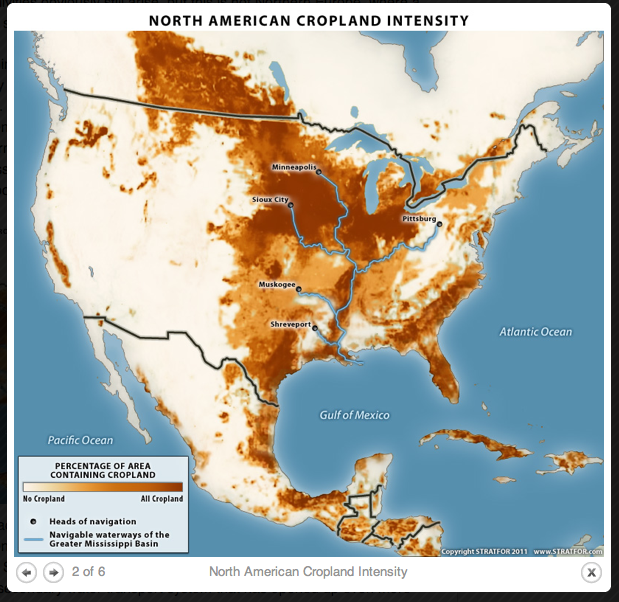Geographic History

An idea formerly popular but now largely ignored is the influence of geography on history. However, like macrohistory or cliodynamics, there are a few hardy souls attempting to reinvigorate the concept. George Friedman gives a pretty good exposition at Stratfor:
The American geography is an impressive one. The Greater Mississippi Basin together with the Intracoastal Waterway has more kilometers of navigable internal waterways than the rest of the world combined. The American Midwest is both overlaid by this waterway and is the world's largest contiguous piece of farmland. The U.S. Atlantic Coast possesses more major ports than the rest of the Western Hemisphere combined. Two vast oceans insulated the United States from Asian and European powers, deserts separate the United States from Mexico to the south, while lakes and forests separate the population centers in Canada from those in the United States. The United States has capital, food surpluses and physical insulation in excess of every other country in the world by an exceedingly large margin. So like the Turks, the Americans are not important because of who they are, but because of where they live.

Read more: The Geopolitics of the United States, Part 1: The Inevitable Empire | Stratfor
Adam Gropnik has a good review in the New Yorker of a number of recent books on the subject. This really is an interesting subject, especially if one can remember that culture and ideas matter too, and that all these things affect each other.



Comments ()